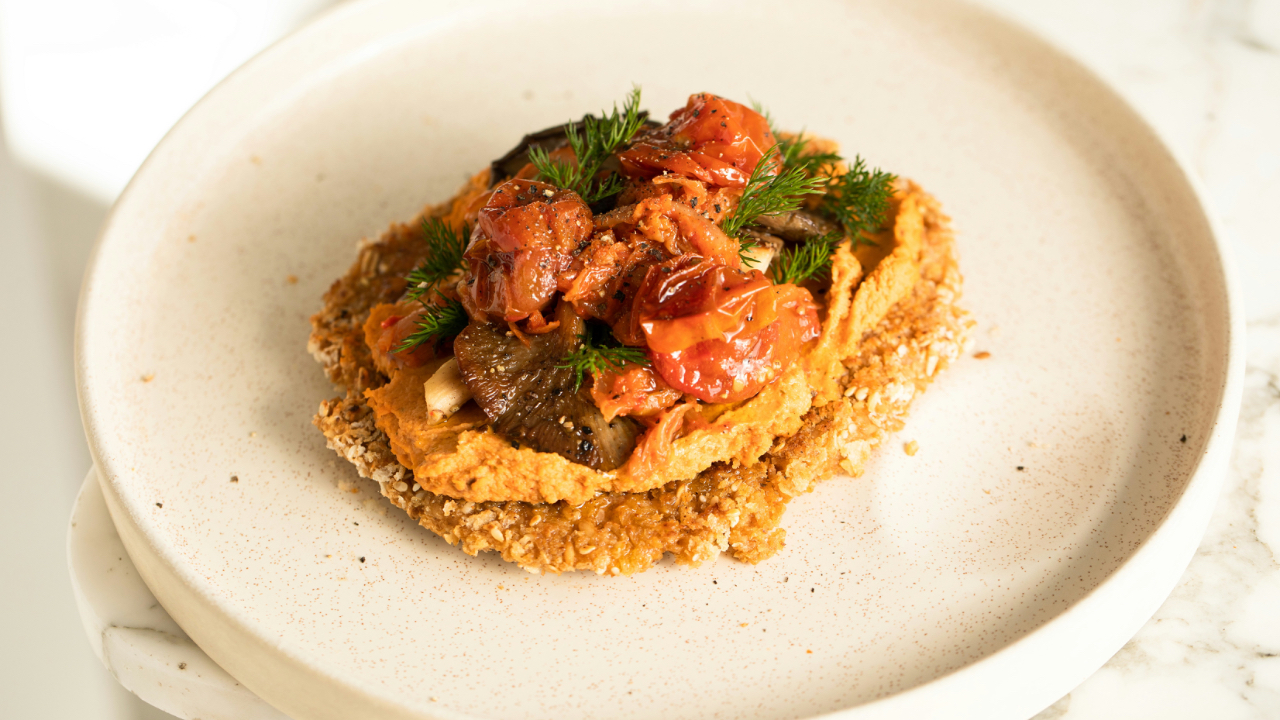Can You Manage PCOS with a Plant-Based Diet?

Polycystic Ovary Syndrome (PCOS) is one of the most common hormonal disorders affecting women, and proper nutrition is the number one tool for successful PCOS management.
One question I hear often is: Can I manage PCOS on a plant-based diet?
The answer: Yes, but it depends.
Let’s break it down—what works, what doesn’t, and what you need to know before you commit to a plant-based approach.
🌿 What Is a Plant-Based Diet?
First, let’s define terms. “Plant-based” doesn’t always mean “vegan.” It’s a broad umbrella that includes:
-
Vegetarian (includes dairy/eggs)
-
Vegan (no animal products)
-
Whole-food, plant-based (WFPB – emphasizes unprocessed plants)
-
Flexitarian (mostly plant-based, occasionally includes meat/fish)
For the sake of this blog, we’re focusing on diets that are either fully or mostly plant-based—where animal products are limited or avoided.
✅ Pros of a Plant-Based Diet for PCOS
1. High in Fiber
Fiber slows down the release of glucose into the bloodstream, helping regulate blood sugar and insulin—two key players in PCOS.
Key foods: lentils, chickpeas, quinoa, oats, berries, leafy greens
2. Anti-inflammatory Effects
Plant-based diets tend to be rich in antioxidants and polyphenols, which can reduce systemic inflammation—another underlying issue in PCOS.
Key foods: turmeric, ginger, berries, cruciferous veggies, green tea
3. Weight and Cardiovascular Benefits
Some studies suggest plant-based diets may support healthy weight management and reduce cholesterol, both of which can help mitigate PCOS symptoms.
4. Gut Health Support
A diet rich in diverse plant fibers can improve microbiome health, which plays a role in estrogen metabolism, insulin sensitivity, and inflammation.
⚠️ Cons (and Considerations)
1. Risk of Blood Sugar Spikes
Many plant-based protein sources (like beans and grains) also contain carbohydrates. If not carefully balanced with fat and protein, meals can lead to unstable blood sugar and worsen insulin resistance.
Solution: Pair carbs with protein (like lentils + tahini) and fats (avocado, olive oil), eat plenty of non-starchy veggies, and avoid refined grains and sugars.
2. Low in Key Nutrients for Hormones
Common deficiencies in strict plant-based diets include:
-
Vitamin B12 (needed for energy + fertility)
-
Iron (plant-based iron is less bioavailable)
-
Zinc (important for ovulation and immune health)
-
Omega-3s (especially EPA/DHA for inflammation and hormone production)
-
Choline (supports liver detox + egg quality)
Tip: Supplement smartly and focus on nutrient-dense foods like pumpkin seeds, tofu, seaweed, and fortified products—or consider a more flexible approach with eggs or fish.
3. Low Protein Intake
Many plant-based eaters fall short on protein, which is crucial for blood sugar stability, body composition, and hormone synthesis.
Workaround: Track protein intake, and use high-quality sources like tempeh, tofu, lentils, hemp seeds, and clean plant-based protein powders (watch out for artificial ingredients).
4. Phytoestrogens and Hormone Balance
Foods like soy contain phytoestrogens, which can either support or disrupt hormone balance depending on the individual. Some women with PCOS do well with moderate soy intake, while others notice more acne or irregular periods.
Takeaway: Listen to your body and test foods individually. Fermented soy like tempeh or miso is generally better tolerated.
💡 What About Insulin Resistance?
Here’s the catch: PCOS is deeply connected to insulin resistance, and many plant-based diets (especially vegan or high-carb vegetarian) rely heavily on grains, legumes, and fruits—which can cause glucose spikes if not managed properly.
But plant-based does not have to mean high-carb.
A PCOS-friendly version of plant-based eating would include:
-
Low glycemic index carbs (like lentils, steel-cut oats, berries)
-
Plenty of healthy fats (avocados, olive oil, tahini, flax)
-
Adequate protein from plants or minimally processed powders
-
Stabilizing snacks with fiber + fat + protein combos
🔁 Can You Start Plant-Based After Balancing Hormones?
Yes—and sometimes it’s the better route.
Many women with PCOS need to first focus on:
-
Healing gut inflammation
-
Stabilizing blood sugar
-
Restoring ovulation
-
Repleting nutrient deficiencies
Doing that may be easier with more flexibility—like incorporating animal proteins (pasture-raised eggs, wild fish, grass-fed meats) temporarily to meet nutrient and protein needs.
Once hormones are more stable, transitioning to a more plant-based lifestyle can work long-term if you stay intentional about:
-
Protein quality + quantity
-
Omega-3 and B-vitamin intake
-
Blood sugar balance with every meal
-
Listening to your body’s signals
📝 Bottom Line
A plant-based diet can work for managing PCOS, but it’s not automatically the best choice for everyone. You’ll need to be strategic, stay on top of nutrients, and prioritize blood sugar balance. Some women thrive plant-based. Others do better with a hybrid or animal-inclusive plan—especially during early hormone healing.
If you're already plant-based or want to try it, the key is intentionality. That means personalized guidance, smart supplementation, and learning how your unique body responds.
🔍 Final Tips for Going Plant-Based with PCOS
-
Don’t rely on vegan junk food (like faux meats or sugary snacks)
-
Use a blood sugar monitor or track meals to learn your personal carb tolerance
-
Include healthy fats at every meal (like hemp hearts, coconut milk, EVOO)
-
Rotate your proteins to avoid nutrient gaps
-
Work with a practitioner if you’re dealing with severe symptoms or trying to conceive
If you're curious about whether a plant-based approach could work for your PCOS journey—or want help finding the right way to eat for your hormones—I’ve got you.
💌 Book a call or check out my PCOS Made Manageable program for a done-for-you plan. Heads up, it's not plant-based!


